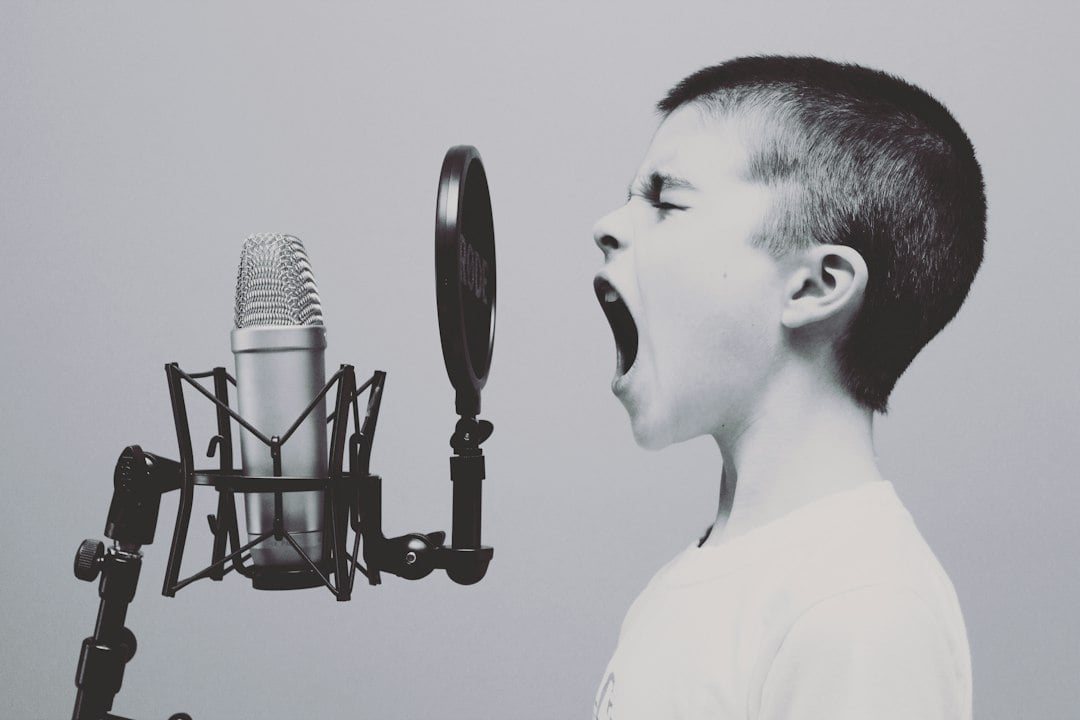
Mindfulness-Based Cognitive Therapy: A Powerful Tool for Overcoming Anxiety and Depression
Mindfulness-Based Cognitive Therapy (MBCT) is a therapeutic approach that combines elements of cognitive therapy with mindfulness practices. It was developed to help individuals who suffer from recurrent episodes of depression and anxiety. The therapy aims to teach individuals how to become more aware of their thoughts and emotions, and to develop skills to manage them effectively.
MBCT was first developed in the 1990s by Zindel Segal, Mark Williams, and John Teasdale. They were inspired by the work of Jon Kabat-Zinn, who developed Mindfulness-Based Stress Reduction (MBSR) as a way to help individuals cope with chronic pain and stress. Segal, Williams, and Teasdale adapted the principles of MBSR to specifically target the prevention of relapse in depression.
Key Takeaways
- Mindfulness-Based Cognitive Therapy is a form of therapy that combines mindfulness meditation with cognitive therapy techniques.
- Anxiety and depression are common mental health disorders that can be caused by a variety of factors and have a range of symptoms.
- The science behind Mindfulness-Based Cognitive Therapy suggests that it can help change the way the brain processes information and reduce symptoms of anxiety and depression.
- Techniques and practices used in Mindfulness-Based Cognitive Therapy include mindfulness meditation, cognitive restructuring, and behavioral activation.
- Benefits of Mindfulness-Based Cognitive Therapy include improved mental health and well-being, reduced symptoms of anxiety and depression, and increased self-awareness and emotional regulation.
Understanding Anxiety and Depression: Causes and Symptoms
Anxiety and depression are two common mental health disorders that can have a significant impact on an individual’s well-being. Anxiety is characterized by excessive worry, fear, and apprehension, while depression is characterized by persistent feelings of sadness, hopelessness, and a loss of interest in activities.
The causes of anxiety and depression can vary from person to person. They can be influenced by a combination of genetic, environmental, and psychological factors. Common triggers for anxiety include stressful life events, trauma, and certain medical conditions. Depression can be caused by a chemical imbalance in the brain, a family history of depression, or significant life changes such as the loss of a loved one or a job.
The symptoms of anxiety and depression can also vary, but there are some common signs to look out for. Symptoms of anxiety may include restlessness, irritability, difficulty concentrating, muscle tension, and sleep disturbances. Symptoms of depression may include feelings of sadness or emptiness, loss of interest in activities once enjoyed, changes in appetite or weight, fatigue, and thoughts of death or suicide.
The Science behind Mindfulness-Based Cognitive Therapy
The science behind mindfulness-based cognitive therapy lies in the understanding of how our thoughts and emotions can contribute to anxiety and depression. Cognitive therapy focuses on identifying and challenging negative thought patterns that can contribute to these mental health disorders. By becoming more aware of our thoughts, we can learn to recognize when they are unhelpful or distorted, and replace them with more positive and realistic thoughts.
Mindfulness practices, on the other hand, involve paying attention to the present moment without judgment. This can help individuals become more aware of their thoughts and emotions, and develop a sense of acceptance towards them. By practicing mindfulness, individuals can learn to observe their thoughts and emotions without getting caught up in them or reacting impulsively.
Research studies have shown that mindfulness-based cognitive therapy can be effective in reducing symptoms of anxiety and depression. A study published in the Journal of Consulting and Clinical Psychology found that MBCT was as effective as medication in preventing relapse in individuals with recurrent depression. Another study published in the Journal of Anxiety Disorders found that MBCT was effective in reducing symptoms of anxiety in individuals with generalized anxiety disorder.
How Mindfulness-Based Cognitive Therapy Works: Techniques and Practices
| Technique/Practice | Description |
|---|---|
| Mindfulness Meditation | A practice that involves focusing on the present moment and observing thoughts and emotions without judgment. |
| Cognitive Restructuring | A technique that involves identifying and challenging negative thought patterns and replacing them with more positive and realistic ones. |
| Body Scan | A practice that involves systematically scanning the body for sensations and bringing awareness to physical sensations. |
| Breathing Exercises | A practice that involves focusing on the breath and using it as an anchor for the present moment. |
| Yoga | A physical practice that involves movement and breath work to increase body awareness and reduce stress. |
| Group Discussion | A practice that involves sharing experiences and insights with others in a supportive and non-judgmental environment. |
| Homework Assignments | Assignments that involve practicing mindfulness and cognitive restructuring techniques outside of group sessions. |
| Neuroplasticity | The brain’s ability to change and adapt in response to new experiences and learning, which is enhanced through mindfulness practices. |
Mindfulness-based cognitive therapy incorporates a range of techniques and practices to help individuals manage anxiety and depression. These techniques include mindfulness meditation, body scan exercises, and mindful movement practices such as yoga.
Mindfulness meditation involves sitting quietly and focusing on the breath or a specific object of attention. The goal is to bring awareness to the present moment and observe any thoughts or emotions that arise without judgment. Body scan exercises involve systematically bringing awareness to different parts of the body, noticing any sensations or tension that may be present.
Yoga is another practice that is often incorporated into mindfulness-based cognitive therapy. It involves a series of physical postures, breathing exercises, and meditation techniques. Yoga can help individuals develop strength, flexibility, and balance, while also promoting relaxation and stress reduction.
By practicing these techniques and incorporating them into daily life, individuals can learn to become more aware of their thoughts and emotions, and develop skills to manage them effectively. This can help reduce symptoms of anxiety and depression and improve overall well-being.
Benefits of Mindfulness-Based Cognitive Therapy: Improved Mental Health and Well-being
Mindfulness-based cognitive therapy has been shown to have a range of benefits for mental health and well-being. Research studies have found that it can reduce symptoms of anxiety and depression, improve mood, and increase overall well-being.
One study published in the Journal of Clinical Psychology found that MBCT was effective in reducing symptoms of depression in individuals with a history of recurrent depression. Another study published in the Journal of Consulting and Clinical Psychology found that MBCT was effective in reducing symptoms of anxiety in individuals with generalized anxiety disorder.
In addition to reducing symptoms of anxiety and depression, mindfulness-based cognitive therapy can also improve quality of life. A study published in the Journal of Psychosomatic Research found that MBCT was effective in improving quality of life in individuals with chronic pain. Another study published in the Journal of Health Psychology found that MBCT was effective in improving quality of life in individuals with fibromyalgia.
Real-life examples of individuals who have benefited from mindfulness-based cognitive therapy are abundant. One individual, Sarah, struggled with anxiety for many years. Through MBCT, she learned to become more aware of her anxious thoughts and developed skills to manage them effectively. She now feels more in control of her anxiety and is able to live a more fulfilling life.
Another individual, John, suffered from depression for most of his adult life. Through MBCT, he learned to recognize his negative thought patterns and replace them with more positive and realistic thoughts. He now feels more hopeful about the future and is able to enjoy activities that once brought him joy.
Alternative Therapies for Anxiety and Depression: Yoga, Meditation, and Acupuncture

In addition to mindfulness-based cognitive therapy, there are several alternative therapies that can help individuals manage anxiety and depression. These therapies include yoga, meditation, and acupuncture.
Yoga is a mind-body practice that combines physical postures, breathing exercises, and meditation techniques. It has been shown to reduce symptoms of anxiety and depression, improve mood, and increase overall well-being. Yoga can help individuals develop strength, flexibility, and balance, while also promoting relaxation and stress reduction.
Meditation is another practice that can be beneficial for managing anxiety and depression. It involves sitting quietly and focusing on the breath or a specific object of attention. Meditation has been shown to reduce symptoms of anxiety and depression, improve attention and concentration, and increase feelings of calm and well-being.
Acupuncture is a traditional Chinese medicine practice that involves inserting thin needles into specific points on the body. It has been shown to reduce symptoms of anxiety and depression, improve sleep quality, and promote relaxation. Acupuncture works by stimulating the release of endorphins, which are natural painkillers and mood enhancers.
These alternative therapies can be used in conjunction with mindfulness-based cognitive therapy to enhance its effectiveness. For example, individuals can incorporate yoga or meditation into their daily routine to further develop their mindfulness skills. Acupuncture can be used as a complementary treatment to help manage symptoms of anxiety or depression.
Combining Therapies: Mindfulness-Based Cognitive Therapy and Medication
Mindfulness-based cognitive therapy can also be used in conjunction with medication to manage anxiety and depression. Medication can be helpful in reducing symptoms of anxiety or depression in the short term, while mindfulness-based cognitive therapy can provide individuals with long-term skills to manage their mental health.
It is important to work with a healthcare provider to determine the best treatment plan for managing anxiety or depression. They can help determine if medication is necessary and can provide guidance on how to incorporate mindfulness-based cognitive therapy into the treatment plan.
The benefits of combining therapies for managing anxiety and depression are numerous. Medication can provide immediate relief from symptoms, while mindfulness-based cognitive therapy can provide individuals with skills to manage their mental health in the long term. This combination approach can lead to improved overall well-being and a reduced risk of relapse.
Mindfulness-Based Cognitive Therapy in Practice: Success Stories and Case Studies
There are many success stories and case studies that highlight the effectiveness of mindfulness-based cognitive therapy in managing anxiety and depression. These stories demonstrate how individuals have been able to overcome their mental health challenges and improve their overall well-being.
One success story is that of Emily, who suffered from severe anxiety for many years. Through MBCT, she learned to become more aware of her anxious thoughts and developed skills to manage them effectively. She now feels more in control of her anxiety and is able to live a more fulfilling life.
Another success story is that of Michael, who struggled with depression for most of his adult life. Through MBCT, he learned to recognize his negative thought patterns and replace them with more positive and realistic thoughts. He now feels more hopeful about the future and is able to enjoy activities that once brought him joy.
Case studies have also shown the effectiveness of mindfulness-based cognitive therapy in managing anxiety and depression. One case study published in the Journal of Clinical Psychology described a woman who had experienced multiple episodes of depression. Through MBCT, she was able to develop skills to prevent relapse and improve her overall well-being.
These success stories and case studies demonstrate the potential for mindfulness-based cognitive therapy to help individuals overcome their mental health challenges and improve their overall well-being.
Integrating Mindfulness-Based Cognitive Therapy into Your Daily Life: Tips and Strategies
Integrating mindfulness-based cognitive therapy into daily life can be challenging, but with practice and dedication, it can become a habit. Here are some tips and strategies for incorporating mindfulness into your daily routine:
1. Start small: Begin by setting aside just a few minutes each day to practice mindfulness. Gradually increase the amount of time as you become more comfortable with the practice.
2. Find a quiet space: Choose a quiet space where you can practice mindfulness without distractions. This could be a designated meditation area in your home or a peaceful outdoor setting.
3. Set a regular schedule: Establish a regular schedule for practicing mindfulness. This will help you make it a habit and ensure that you set aside time each day for self-care.
4. Use guided meditations: If you are new to mindfulness, using guided meditations can be helpful. There are many apps and websites that offer guided meditations for free or for a small fee.
5. Practice mindfulness throughout the day: Mindfulness is not just about sitting quietly and meditating. It can also be incorporated into everyday activities such as eating, walking, or even washing dishes. Try to bring awareness to the present moment and observe any thoughts or emotions that arise.
6. Be patient with yourself: Mindfulness is a skill that takes time to develop. Be patient with yourself and don’t expect to become an expert overnight. Remember that every moment is an opportunity to practice mindfulness, and each practice session is an opportunity for growth.
The Future of Mindfulness-Based Cognitive Therapy in Mental Health and Wellness
The future of mindfulness-based cognitive therapy in mental health and wellness looks promising. As more research is conducted on the effectiveness of the therapy, it is likely to become a mainstream treatment for anxiety and depression.
The potential benefits of mindfulness-based cognitive therapy on mental health and well-being are significant. By becoming more aware of our thoughts and emotions, we can learn to manage them effectively and reduce symptoms of anxiety and depression. This can lead to improved overall well-being and a better quality of life.
However, it is important to continue researching and developing mindfulness-based cognitive therapy to ensure its effectiveness and to tailor it to meet individual needs. By understanding the science behind the therapy and incorporating it into daily life, individuals can experience the benefits of mindfulness-based cognitive therapy and improve their mental health and well-being.
If you’re interested in exploring the benefits of mindfulness-based cognitive therapy for managing anxiety and depression, you may find this article from Wave Magnets insightful. Wave Magnets is a website dedicated to promoting mental well-being and personal growth. They offer a variety of resources and tools to help individuals navigate their emotional challenges. In this particular article, they delve into the practice of mindfulness-based cognitive therapy and its effectiveness in alleviating symptoms of anxiety and depression. To read more about it, visit Wave Magnets.
FAQs
What is mindfulness-based cognitive therapy?
Mindfulness-based cognitive therapy (MBCT) is a type of therapy that combines mindfulness techniques with cognitive behavioral therapy (CBT) to help individuals manage their thoughts and emotions.
How does MBCT help manage anxiety and depression?
MBCT helps manage anxiety and depression by teaching individuals to become more aware of their thoughts and emotions, and to develop a more accepting and non-judgmental attitude towards them. This can help individuals break free from negative thought patterns and reduce symptoms of anxiety and depression.
What are some mindfulness techniques used in MBCT?
Some mindfulness techniques used in MBCT include meditation, breathing exercises, body scans, and mindful movement. These techniques help individuals become more present and aware of their thoughts and emotions.
Is MBCT effective for managing anxiety and depression?
Research has shown that MBCT can be effective for managing anxiety and depression. Studies have found that MBCT can reduce symptoms of anxiety and depression, and can also help prevent relapse in individuals who have experienced recurrent episodes of depression.
Who can benefit from MBCT?
MBCT can benefit individuals who experience symptoms of anxiety and depression, as well as those who are at risk of relapse. It can also be helpful for individuals who experience stress or have difficulty managing their emotions.
Is MBCT a substitute for medication?
MBCT is not a substitute for medication, but it can be used in conjunction with medication to manage symptoms of anxiety and depression. It is important to consult with a healthcare professional to determine the best course of treatment for an individual’s specific needs.


















